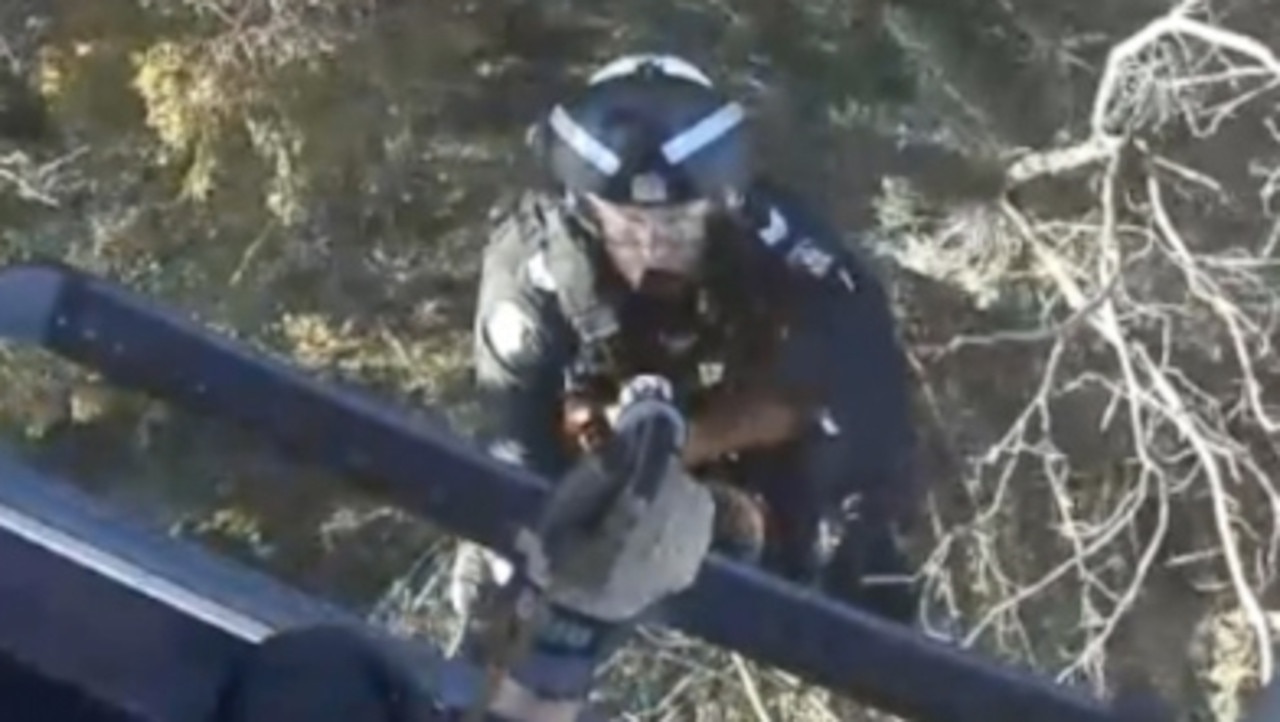Ovarian cancer: Blood test to detect disease developed by Hudson Institute
A groundbreaking Melbourne discovery for ovarian cancer — one of the most difficult to detect — is set to save lives and protect fertility.
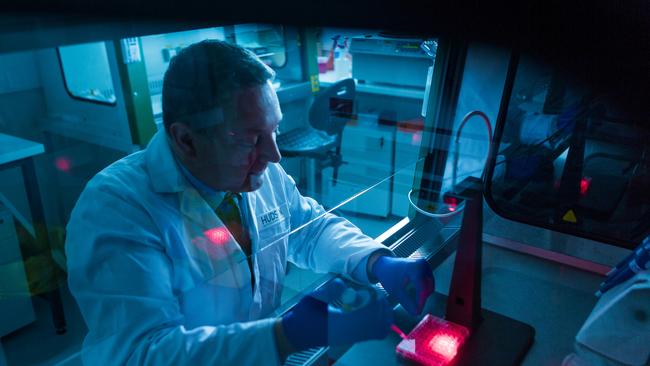
Victoria
Don't miss out on the headlines from Victoria. Followed categories will be added to My News.
A groundbreaking Melbourne discovery for ovarian cancer is set to prevent women from unnecessarily having their ovaries removed and losing their fertility.
The simple blood test, developed by scientists at the Hudson Institute of Medical Research, will also improve treatment of the disease which claims the lives of more than 1000 Australian women every year.
For the first time, doctors will be able to use the blood test to determine whether a woman has a non-malignant condition such as an ovarian cyst – which is not life-threatening – or cancer before surgery.
Nine out of 10 patients who undergo the surgery — the only way to currently detect — don’t have cancer.
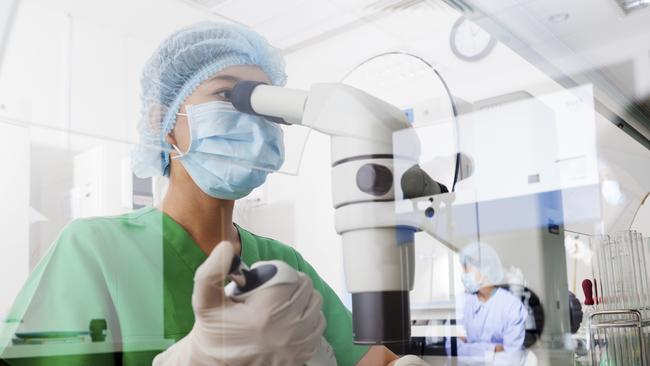
The test is expected to be available in Australia within two years.
It is the first major advancement in developing a diagnostic tool for the gynaecological cancer.
Until now there has not been a reliable detection test for ovarian cancer so it is notoriously difficult to diagnose because of its often “vague” symptoms.
This means many women do not present until the cancer is at an advanced stage, which can be why the five-year survival rate is less than half; a statistic that hasn’t changed in more than 50 years.
This new test, called the CLEO surgical triage test, is the result of a discovery by a team at the Hudson Institute, work that has been funded for more than a decade by the Ovarian Cancer Research Foundation (OCRF).
The test looks for a novel biomarker in the blood called CXCL10, which was the discovery of scientist Dr Andrew Stephens.
Dr Stephens explains this biomarker is produced early and at high levels by ovarian cancers, but not in non-malignant disease.
“One of the biggest problems, apart from our ability to detect ovarian cancer, is distinguishing what is a cancer and what is a non-malignant condition such as an ovarian cyst,” he said.
Dr Stephens said the current practice was for all patients who have the specific CA125 marker to undergo surgery in order to diagnose – which typically will involve the removal of any suspicious mass and often other tissues, including the ovaries.
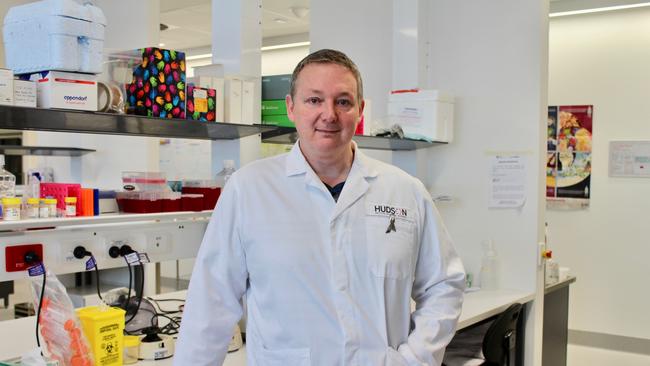
“About nine out of 10 times the removed mass will be benign, a cyst or similar. The consequence is instant menopause for pre-menopausal women, which also comes with increased health risks such as cardiac disease, stroke and osteoporosis.”
Dr Stephens said the other side was the cancer patients who needed to be seen by a gynaecological oncology specialist to have the best outcome.
“Less than half the patients with ovarian cancer worldwide are seen by the right kind of surgeon because there is no way to make a diagnosis before they go to surgery,” he said
“What this test is going to do is tell doctors what is most likely benign or most likely malignant.”
Dr Stephens said the test was an important discovery, and that getting it into the clinic was the next step.
“That will happen quite soon. We are looking at getting this FDA-approved within two years and at that point we will start using it.”
He said further clinical trials will start within the year
Dr Stephens is also the chief scientific officer of Australian company Cleo Diagnostics that will commercialise the CLEO surgical Triage Test.
“This first test will be given to any woman who has a suspected gynaecological abnormality. The next will look at earlier detection of cancer recurrence to explore treatment options. The third is the holy grail, population screening.”
He said these tests are “down the track” but the long-term goal.
OCRF chief executive officer Robin Penty said through ongoing community support, it was proud to have nurtured the research from the lab bench through to the commercialisation phase.
Cleo Diagnostics will list on the ASX on Tuesday. In a statement the company says the funding will provide a runway over the next two years to enable a blood test to be built, validated and made available for initial clinical triage use in 2025.
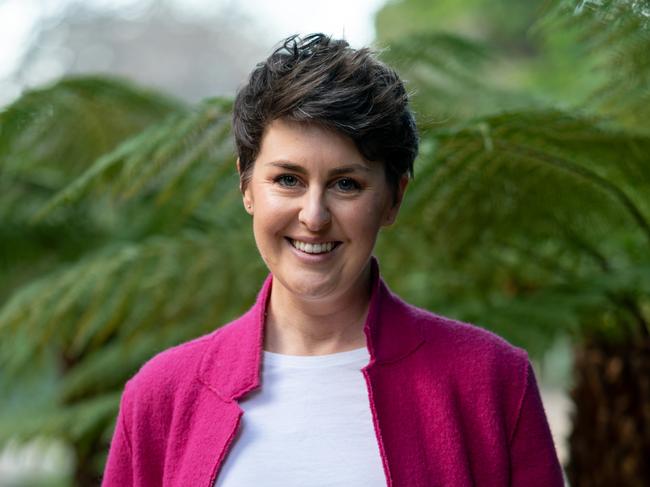
Lawyer Amelia Higgs says the news of an ovarian cancer triage test is great for women in the future, but admits it has also made her feel “emotional”.
A year ago, as she and partner Dylan Oswin were planning their future and a family, Ms Higgs, 35, discovered she had borderline complex ovarian cysts.
“They weren’t cancerous, but had the potential to become cancerous,” she explained.
Ms Higgs said an ultrasound discovered the large cysts on an ovary, but the only way to know the true nature of the cysts was to have them surgically removed and sent for biopsy.
During surgery, that happened just three weeks after her first GP visit, both ovaries were removed, ending her dreams of having a biological child.
“It all happened so quickly that I didn’t have time to consider options like harvesting eggs so I lost my fertility,” she said.
“Had that test been available earlier I guess there would have been the option of trying to do that or I could have avoided surgery.”
Ms Higgs, who last year raised more than $14,000 for the Ovarian Cancer Research Foundation that has helped in the development of the test, says she is thrilled that other people are going to have access and that it may prevent them from going through her experience.
Originally published as Ovarian cancer: Blood test to detect disease developed by Hudson Institute



